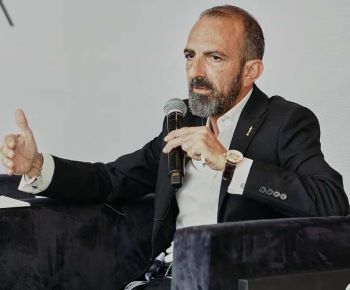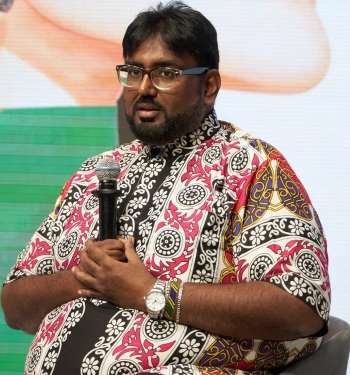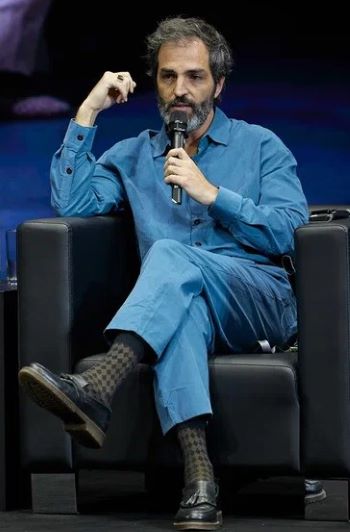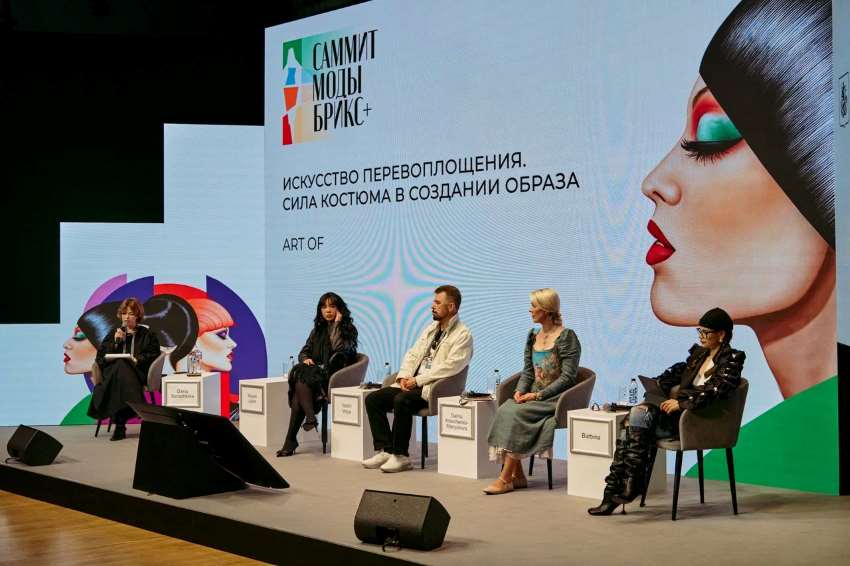The global fashion landscape is undergoing a "tectonic shift," and the inaugural BRICS+ Fashion Summit, held in Moscow from August 28-30, has placed a firm spotlight on the emerging forces at play. The event was a masterclass in re-thinking the fundamentals of the industry, with a series of business sessions dissecting everything from the rise of the young designer to the future of retail. The consensus among speakers from across the BRICS+ nations was clear: the era of "big" brands is giving way to a new paradigm built on individuality, community, and an understanding of cultural value that goes far beyond a logo.
The Rise of the Indie Designer: Courage over corporate power

In a session titled "New Generation of Designers. The End of Big Brands’ Dominance?", industry veterans and newcomers alike explored the challenges and opportunities for independent creators. The dialogue centered on how young designers are succeeding not by mimicking established hierarchies, but by embracing flexibility, technology, and a direct connection to their audience.
Designer Julia Dalakian, a seasoned veteran, acknowledged the enduring struggle for new talent but noted a significant change. "When we started, nobody needed us at all, everyone bought foreign products; now it’s different," she said. Dalakian emphasized that in today's crowded market, the key to success is expressing individuality, and that the vast amount of online information makes it easier for those "ready to learn."
Sergey Sysoev, another founder-designer, echoed this sentiment, stating that "courage and individuality are the only things that can compete with large brands." He also highlighted the importance of a deep, localized understanding of the consumer—a nuanced knowledge of "what people wear in winter and what in summer"—that a massive global corporation can rarely replicate. Stefaniya Malikova, an influencer and designer, encapsulated the shift in consumer psychology perfectly: "Clients now buy not a product, but a mood."
Creative Capital: Ideas as the new currency

The conversation shifted from the artist to the entrepreneur in the session, "Creative Upgrade. Turning Ideas into Capital." Speakers discussed the burgeoning creative economy and how the fashion segment is a vital engine for it. Nikolay Megvelidze, Managing Creative Director at BBDO, challenged the traditional fashion business model. He introduced the concept of "ecosystem thinking," which he described as creating a core concept first, then using it to launch "multiple channels and platforms, enter other industries, and multiply profits."
The session provided a powerful case study in the brand as a force for social good. Yulia Golubeva, Deputy General Director of Gazprom-Media Holding, shared the story of the brand Be Easy Kid, which creates functional clothing with magnetic fasteners for children with disabilities. "Today it is not just a clothing brand but a whole ecosystem of projects aimed at social integration of children with disabilities," Golubeva said, demonstrating how a powerful idea can generate both profit and social impact.
The Hybrid Retail Revolution: Offline is the new online

As brands look to scale, the question of "Quantity or Quality?" looms large. This session tackled a fundamental dilemma: how to grow without diluting a brand's unique identity. The answer, according to Adrian J. Mizzi, Founder of Malta Fashion Week, is simple: "Quality always comes first. Quantity follows quality."
The discussion also explored the evolution of sales formats, with the session "From Offline to Online and Back" highlighting the emergence of hybrid models. Marina Polkovnikova, CEO of VMC Retail, detailed a number of essential retail trends for today's market, including the use of art installations for social media content, the development of concept stores, and the rise of customer service as the "new currency." Artem Yaskov, Chief Operations Officer at Cozy Home, advised brands to differentiate their product assortments across physical stores, e-commerce, and marketplaces to cater to consumer convenience.
The Power of Storytelling: From logo to culture
Day one concluded with a focus on the philosophical underpinnings of modern branding. The session "Power of Positioning. Brand Evolution — From Logo to Culture" explored how a brand's success today is tied not to its logo, but to its ability to create a community and a cultural identity.
Yuliya Tipenkova, CEO of Lyna Plus, emphasized the need for brands to slow down and understand their true essence. "Today, a brand represents the community customers aspire to join and where they feel genuinely comfortable," she explained.

Mustafa Hassanali, Chairperson of Swahili Fashion Week, brought the point full circle, declaring that the BRICS+ Fashion Summit itself is a testament to this new cultural influence. "I believe the emotions generated here enable us to create culture itself," he said. "The summit's positioning demonstrates it stands as the world's premier fashion event."










